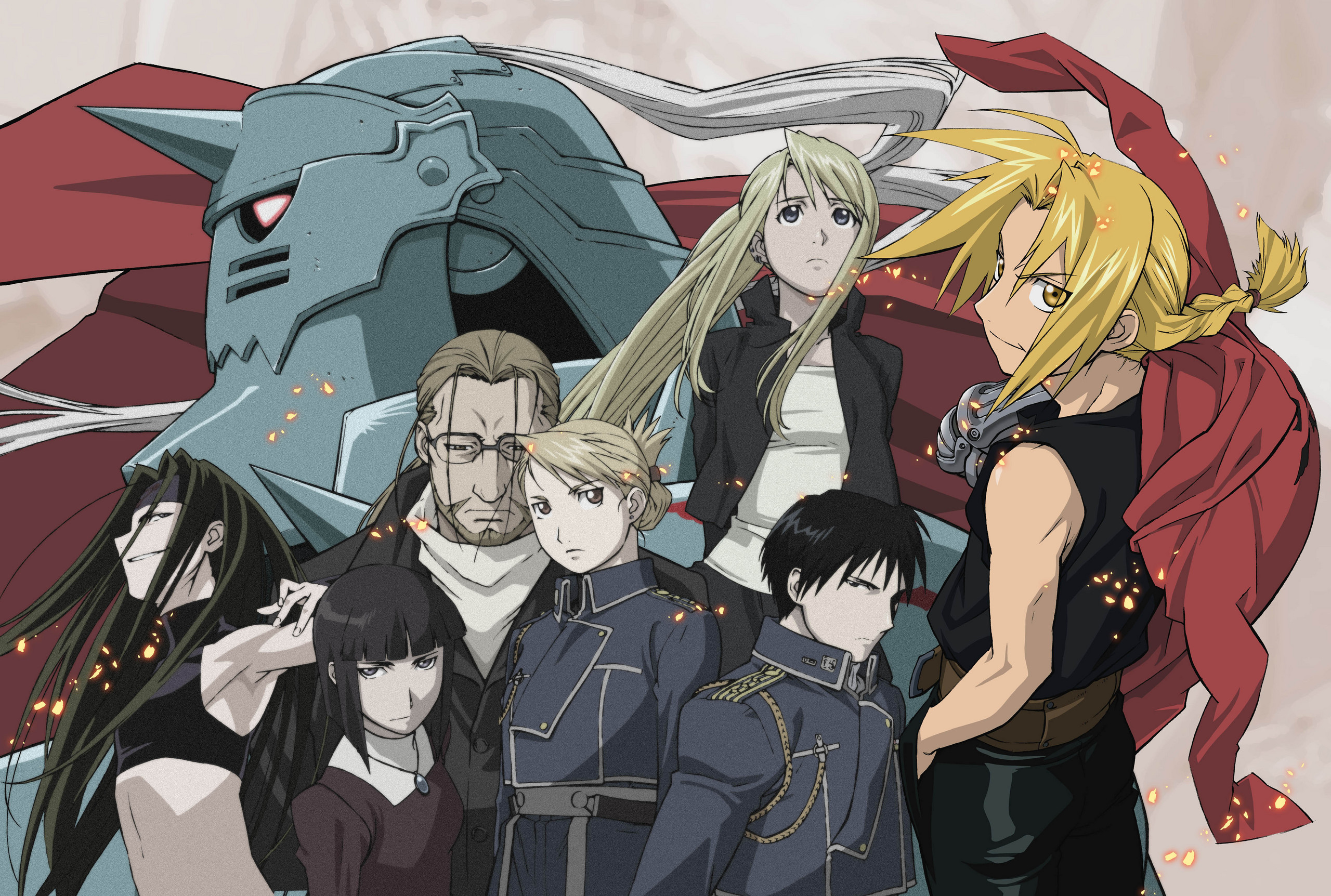
Review: Fullmetal Alchemist (2003)
Today, it is my absolute pleasure to present my review of Fullmetal Alchemist–the original 2003 series.
Fullmetal Alchemist is widely considered a landmark anime series that forever changed the typical Shōnen genre–as well as anime as a whole–through its combining of various elements in a way that had never been done before.
For those who don’t know, “Shōnen” is a genre of manga/anime that is typically humorous, action-packed, and features a male lead character. Some examples are Dragon Ball, Naruto, One Piece, Bleach, Attack on Titan, Hunter x Hunter, and Rurouni Kenshin.
Fullmetal Alchemist’s almost instant acclaim was largely due to how innovative it was for its own genre. It’s a safe bet to say that many successful Shōnen series today owe a lot to FMA in terms of its overall influence.
Now that it’s been 13 years since Fullmetal Alchemist first premiered, how well has it held up?
Obviously, a common response from many would be to just watch the updated 2009 adaptation of the original manga, Fullmetal Alchemist: Brotherhood.
While I’ll get to Brotherhood and how it compares to 2003’s version eventually, I’m going to focus solely on the original anime series today. Since Brotherhood didn’t exist when the original show aired, it’s only fair that we discuss it accordingly.
I’ve structured this review to independently evaluate the elements of an anime show that I find most important. These include: the Plot and Story, Characters, Sound, Animation, Themes, the Ending, and my own Personal Enjoyment.
Without further ado, I present my review of 2003’s Fullmetal Alchemist.
Plot/Story

Fullmetal Alchemist is a tale of two brothers, Edward and Alphonse Elric, who are suddenly stricken with the death of their mother. Driven by grief, the two research the practice of Alchemy as a means of reviving their deceased mother.
In this world, Alchemy is a form of science which grants the user anything he/she desires through “Transmutation”, as long as something of equal value is lost in return—otherwise known as the “Law of Equivalent Exchange”.
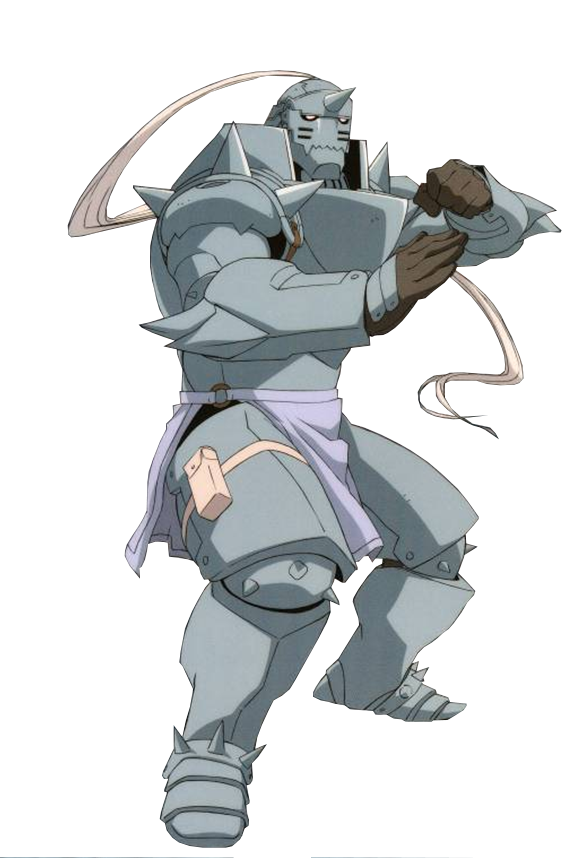
Although the Elric brothers are aware of Alchemy’s main taboo, human transmutation, they go along with the procedure anyway out of sheer desire to reunite with their mother. The transmutation is botched, with both Edward’s leg and Alphonse’s entire body taken as payment for the attempted transmutation. With no other choice, Edward offers his arm as payment for Alphonse’s soul—which he binds to a nearby suit of armor.
From this point, the story follows the Elric Brother’s search of a Philosopher Stone—an item known to supersede the law of Equivalent Exchange and allow costless transmutation—in order to restore their bodies.
The earlier episodes mostly play out in typical Shōnen fashion—independent scenarios that the Elrics work through while developing their characters and pursuing their goal.
However, the progression of Ed and Al’s journey reveals why Fullmetal Alchemist was so groundbreaking during the time of its release. Although the Philosopher Stone might initially be presented as a simple plot device to motivate the Elric brothers, its deep involvement with the actual plot and its characters was something that had never been done before. Or, at least, not done this well.
The weaving of the Stone’s influence through plotlines of the Elrics, the military, and various villains helps add credibility to why the Stone is so highly sought after.
Also unlike most Shōnen that have come before or since, Fullmetal Alchemist was able to tell a complete story and (gasp!) actually end in a timely manner of just 51 episodes.
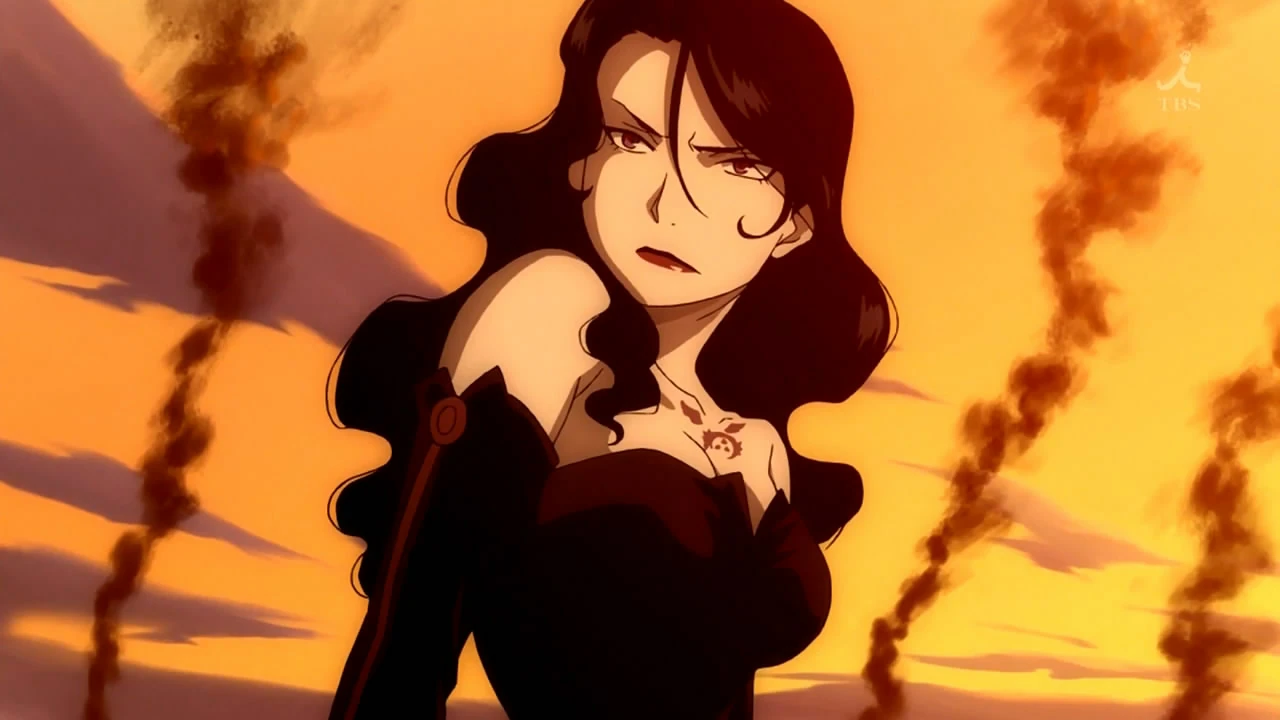 Contained within those 51 episodes is an incredibly engaging experience so perfectly paced that FMA’s pacing is still considered a gold standard of anime 13 years after its release.
Contained within those 51 episodes is an incredibly engaging experience so perfectly paced that FMA’s pacing is still considered a gold standard of anime 13 years after its release.
What many people jump out of their chairs to inform people interested of the 2003 adaptation is that it diverts heavily from the original manga. This is because production of the show began while the manga was still running.
Opinions on this range all across the spectrum, by I personally find it to only add to the 2003 show’s quality, seeing as how the creators were able to do so much with a story that wasn’t completely finished. Even with the divergence from the original source 2003’s adaptation is still one of the best anime stories that I’ve ever been lucky enough to experience.
Characters

Talking about the characters Edward and Alphonse Elric and how great they both are in tandem would almost be a formality at this point.
Having the series lead, Edward, be an undersized and physically impaired hero was another way in which Fullmetal Alchemist broke new ground for anime. Never before had a Shōnen protagonist been so flawed and immediately relatable, and I think this is why Edward has become one of the most beloved anime characters of all time. As a viewer, you genuinely empathize with his guilt and desire for redemption, and root for him as he grows over the series.
Additionally, Alphonse proves himself to be so likeable over the development of the series that it’s easy to forget that he’s a young boy’s soul in a suit of armor.
And that’s the main strength of the show’s characters. No character in the series, whether protagonist or antagonist, is entirely who they appear to be on the surface. While role players like Scar, Ed, and Roy Mustang are entirely fleshed out and explored throughout the show, the series does a fantastic job of devoting development to its non-main characters as well.
We remember their names, motivations, and their role in the greater plot. This makes for as strong of an anime cast as you can find.
Sound

A show’s soundtrack can push a series from being very good to very great, which is the case for many acclaimed shows like Death Note.
Simply put, Fullmetal Alchemist’s soundtrack took a show that was already very great and helped it become an all-time classic.
The somber orchestral numbers that play throughout the series perfectly match the overall dark tone of the show, and add to the prominent themes of regret, tragedy, and the longing for redemption.
FMA’s real strength lies in its ability to inspire genuine emotion within the viewer, and the soundtrack plays a major role in this effect.
The series’ main theme, Bratja, is—and I say this with no bias—the most emotionally enticing song that I’ve ever heard in an anime series. (And yes, I’ve seen Code Geass) The song always seems to come around at the most absolutely appropriate times, too.
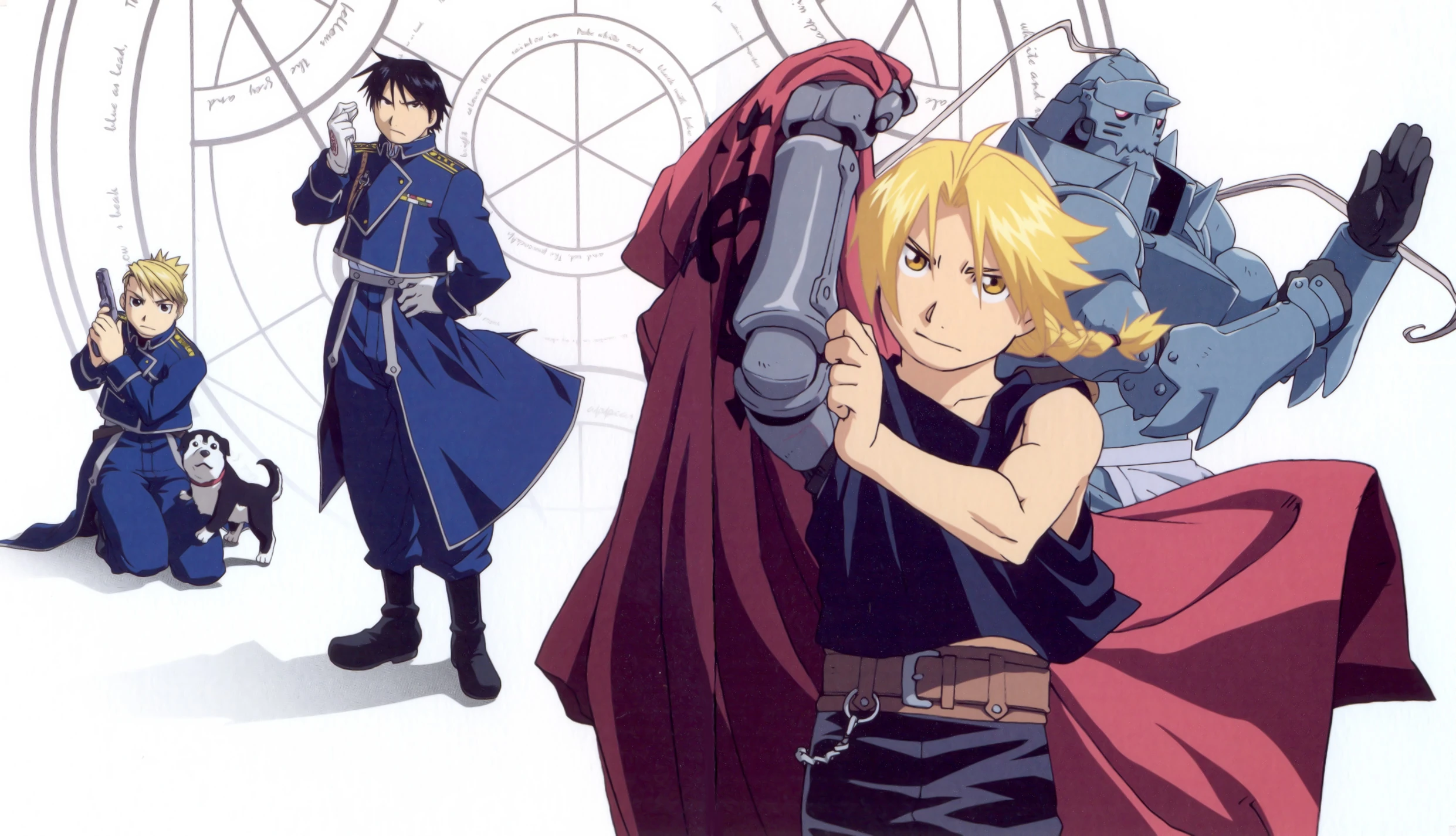
Although I’ve already said that I planned on avoiding comparisons to Brotherhood in this review, I feel the need to say that the absence of the original’s music in Brotherhood—namely the song Bratja—is a glaring flaw in the remake that left he series feeling a bit hollow by comparison.
As far as dubbed anime goes, Fullmetal Alchemist is still one of the best a fan could ever hope to come across. Again—great dubbed anime were still few and far in between back in 2003.
The openings are, admittedly, pretty “meh” when compared to the quality of the score and voice acting. However, the latter two are so astronomically great that the subpar themes are easily forgivable. They also get better as the series progresses, so there’s that.
Animation
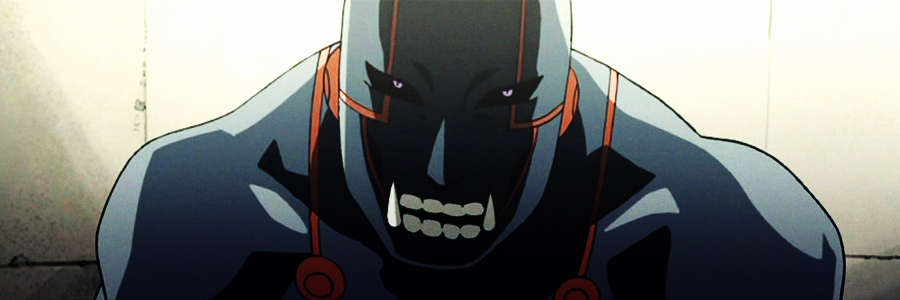
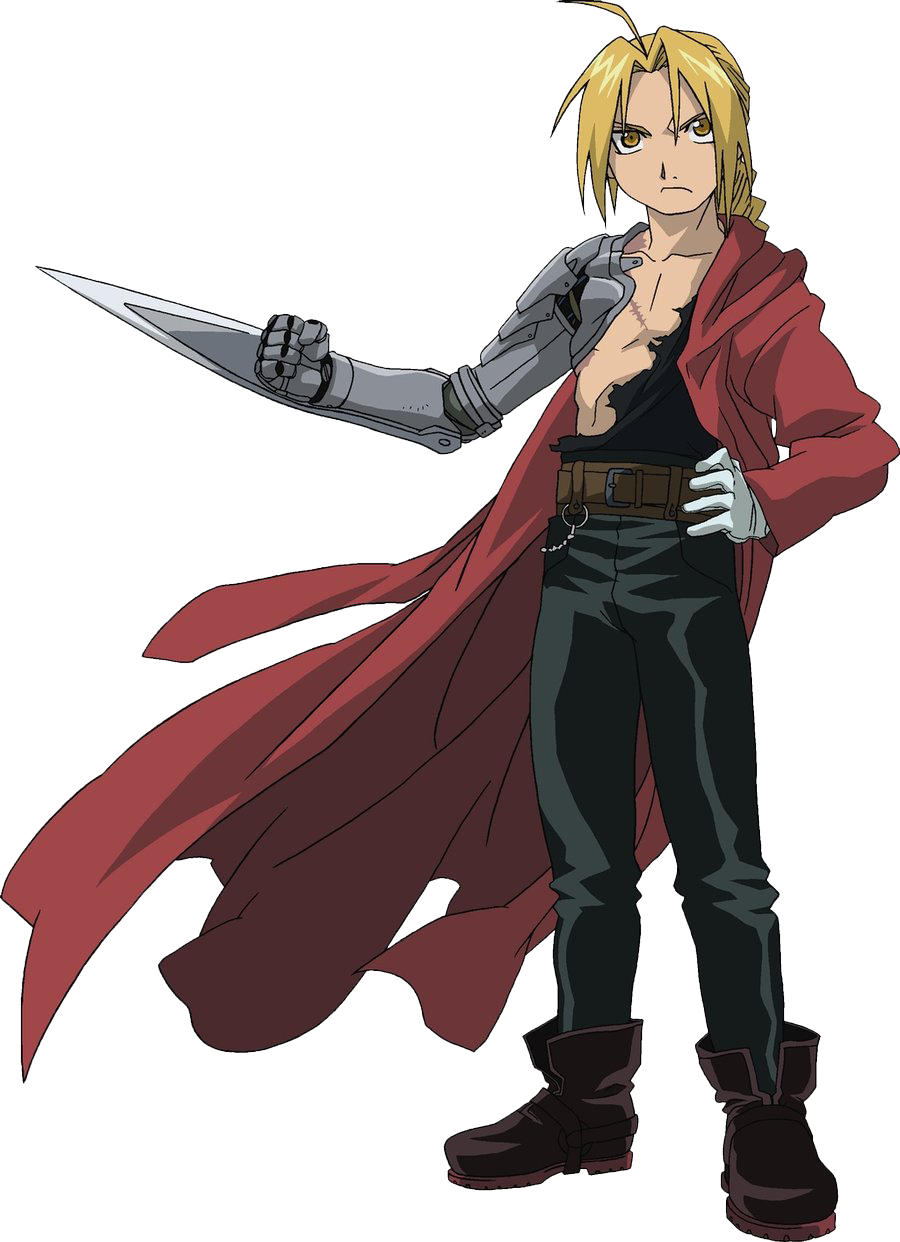
Do you know what other anime series was released in 2003?
Sonic X.
In terms of animation, that’s like comparing South Park’s 1st season to its most recent.
FMA was, for its time, a beautifully animated show. While it looks a bit dated when compared to shows from today like Attack on Titan and No Game No Life, we must remember that the series is over 13 years old. With its age taken into account, Fullmetal Alchemist still looks pretty good.
My only gripe with the series’ animation, though, is its action sequences. Although the story makes Alchemy’s immense power clear to the viewer very early, I couldn’t help but feel a lot of the transmutations and action sequences to be a bit underwhelming.
Luckily, the action in FMA usually takes a backseat to the emotions and motivations of the characters anyway, so the lack of overly impressive fight sequences often goes unnoticed.
Themes
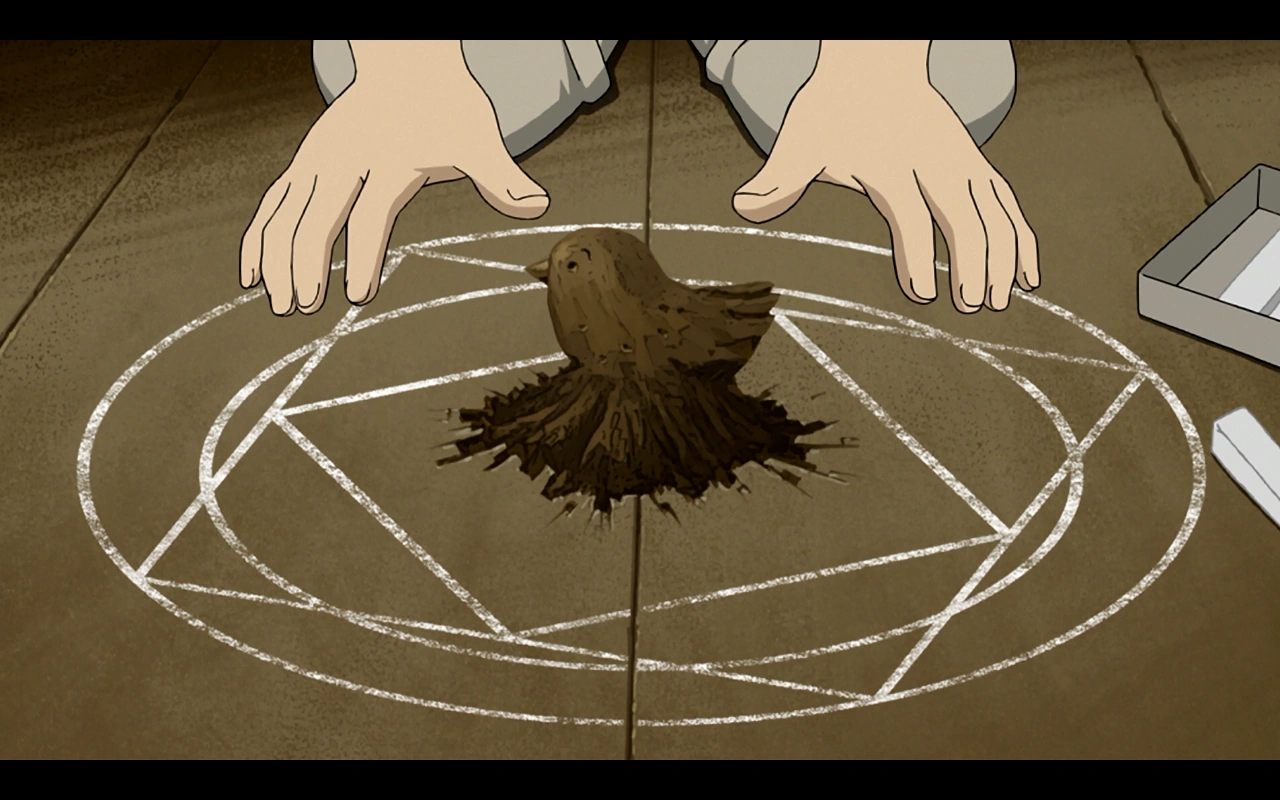
Going into first watching FMA, I would have never guessed that a show so wildly popular would have themes that were so…dark.
The story of Fullmetal Alchemist is centered on loss, tragedy, redemption, war, blind faith, family, and more—all of which are handled flawlessly by the narrative.
While it’s one thing for such a combination of emotional concepts to be the first of its kind in Shōnen anime, but it’s an entirely different accomplishment when such a combination is communicated so profoundly to the viewer.
The themes of Fullmetal Alchemist aren’t simply observed. Rather, they are felt, experienced, and explored.
This is especially true for the show’s umbrella theme of Equivalent Exchange. The concept that we can only gain something after an equivalent sacrifice is a lesson which many fans have taken from the series and carried with them throughout life. I’ve only recently seen the show, and can confidently say that it’s changed my life, with Equivalent Exchange being a main reason why.
Fullmetal Alchemist is a show that remains very meaningful with its fans, and it’s because of how strong its thematic lessons resonate with us.
Ending

The most polarizing aspect of FMA as a series is undoubtedly its ending.
Like I mentioned earlier, the 2003 anime branched off greatly from the original manga once the anime caught up to it.
Right about now is where Manga purists from all over the world fume with disgust, since the ending of 2003’s series isn’t how the manga ended.
While the 2003 is, in fact, vastly different than the original manga—and the follow-up adaptation, Brotherhood—that doesn’t mean that the ending is inherently bad.
In fact, I think the 2003 ending was very good, albeit in a more…interesting way than usual. The conclusion of the original anime was consistent with the dark and somber tone of the entire series. Sure, the plot gets a little strange down the stretch, but it’s at least believable, and stays within the confines of reality that the earlier episodes established.
The finale isn’t the “happily ever after” that we’ve become so accustomed to. But that’s the thing: Fullmetal Alchemist is such a great series because it teaches us that sometimes “happily ever after” just isn’t a reality.
It’s a tough pill to swallow, and not one that is particularly satisfying, but the ending earns its merits for staying true to the nature of the series as a whole.
Personal Enjoyment

My personal opinion on this show is already a foregone conclusion.
I haven’t seen show that’s inspired so much emotion and self-reflection in a very long time.
I know that I’m a bit late to the party here, having waited 13 years to finally watch the series, but I’m glad that I was able to view FMA at a time of my life when I could fully understand it.
Verdict

Fullmetal Alchemist was an absolute game-changing series upon its release, since nothing had ever come around before with so many different elements so masterfully packed into one show.
Many of my peers who have already seen the show did so back in 2003 when it was first released. The release of Brotherhood in 2009 made it much less likely for anyone to revisit the original series. If you’re one of these people, I recommend that you go back and re-watch the 2003 series, since you might have missed a lot of the show’s finer elements the first time around.
If you haven’t seen FMA at all, then I can only give my absolute highest recommendation. Fullmetal Alchemist is truly a masterpiece, and an example of anime at its absolute best.
Do I think Fullmetal Alchemist is one of the best anime ever? Given how it stood out from other anime at the time of its release, its objective quality, and its lasting influence on Anime as a medium—easily.
Pros
- Excellent pacing
- One of the strongest casts in anime
- Emotionally gripping
- Sympathetic antagonists
- Soundtrack
- Real-world themes
Cons
- Animation might seem a bit dated by today’s standards
- Occasional filler
- An ending that might leave you scratching your head
- Underwhelming action sequences
Final Score: 9.5/10